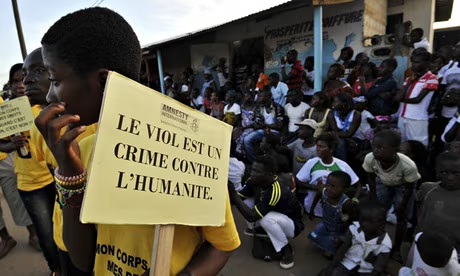The African Commission on Human and Peoples’ Rights (ACmHPR) has ruled against the Mauritanian government, finding it in violation of the rights to non-discrimination and property, as well as in violation of its obligations towards the African Charter on Human and Peoples’ Rights for its un-proportional punishment through closure and seizure of property of the opposition political party and arrest of leaders of Union de forces démocratiques/ Ere nouvelle (UFD/EN) in November and December 2000.
The decision, published in the ACmHPR’s 28th Annual Activity Report after its approval by the July 2010 AU Assembly of Heads of State and Government, is an important step in the 10 year journey for UFD/EN and their clients, INTERIGHTS, IHRDA and Association mauritanienne des droits de l’Homme (AMDH). This decision, 373/06 INTERIGHTS, IHRDA and AMDH v Mauritania, is the second decision issued by the ACmHPR on the matter. It follows the decision on the original communication 242/01 INTERIGHTS, IHRDA and AMDH v Mauritania. Communication 373/06 was filed on 1st September 2006 and follows up on the allegations made in the earlier 242/01 INTERIGHTS, IHRDA and AMDH v Mauritania of violation of articles 1, 2, 7, 9(2), 10(1), 13 and 14 of the African Charter. This follows the arbitrary dissolution of the political party UFD/EN and seizure of its movable and immovable assets as well as arrest, harassment and intimidation of its leaders between October and December 2000.
Agreeing with the victims, the ACmHPR has recommended that Mauritania pay adequate compensation to the victims for the loss suffered and ensure that its laws on freedom of association and in particular as concerns political parties, conform to its obligations under the African Charter on Human and Peoples’ Rights. Moreover, in continuing a recent trend, Mauritania is further required to report back to the ACmHPR in 6 months as to its progress in implementing the recommendations.
Landmark jurisprudence
This decision 373/06, is also landmark case law as it is the first time the ACmHPR has reviewed a decision to exhaustively address the allegations and prayers of the Complainants. The ACmHPR reaffirmed its obligation and commitment to review such an incomplete decision, termed ‘infra petita’ in the interests of justice. In doing so, it set out the conditions under which a decision can be termed ‘infra petita’ and therefore have right to be reviewed. Of the seven (7) alleged violations of the African Charter in the original communication 242/01, the ACmHPR failed to pronounced itself on three of these, while also failing to recommend specific remedies for the violations that it did pronounce on. In the words of the ACmHPR, “it is perfectly legal for a tribunal that had forgotten to decide on a claim (‘infra petita‘) to supplement its decision without affecting the res judicata character of the other claims decided upon. This procedure … can be undertaken suo moto or on the request of one of the parties” [para. 38].
Thus the ACmHPR has reasserted the right to a remedy for a violation and offers clarity to victims who seek justice before the ACmHPR not only will the outcome clarify if the African Charter has been violated but if so, a remedy for the violation suffered will be ordered. It also clears the way for other possible request for review of infra petita decisions.
The original communication 242/01 INTERIGHTS, IHRDA and AMDH v Mauritania was filed 25th April 2001.




